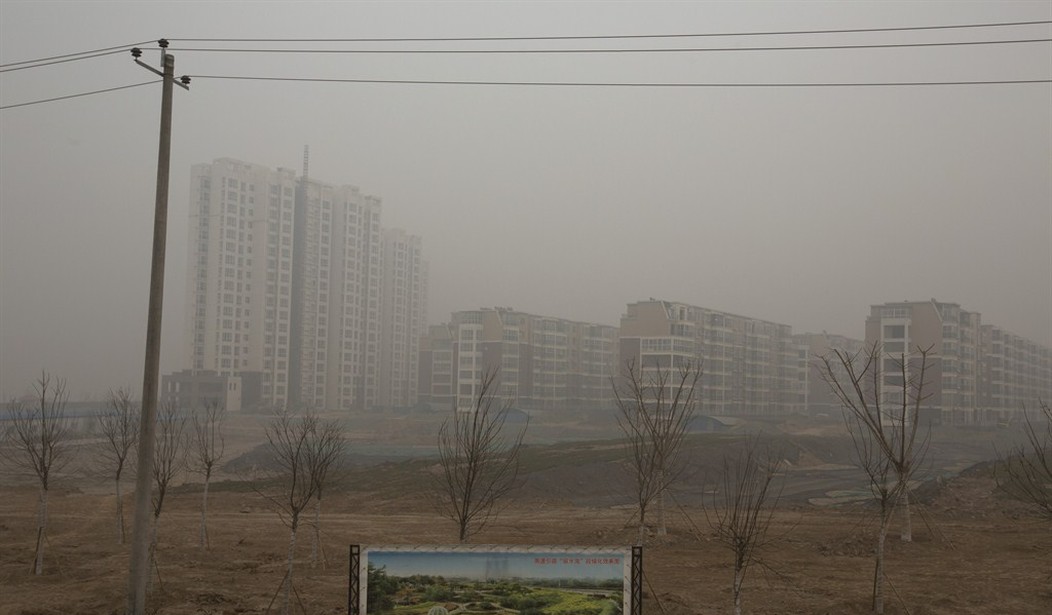Chinese property developer Evergrande defaulted in 2021 and recently filed for bankruptcy protection in the United States. But it wasn’t until today that the company’s stock resumed trading after 17 months of absence from the Hong Kong stock exchange. The results were about what you’d expect.
Shares of the world’s most indebted property developer plunged as much as 87% on its open on Monday, trading for the first time since March 21, 2022.
Shares fell to as low as 22 Hong Kong cents on Monday, compared to its last close at 1.65 Hong Kong dollars per share on March 18, 2022.
The resumption of trade comes as the company posted a loss of 39.25 billion yuan ($5.38 billion) for the six months ended June, a smaller loss compared to the 86.17 billion yuan loss the same period a year ago.
The big question now is what will happen with Country Garden, another of China’s largest property developers. Country Garden signaled recently that it was at risk of defaulting on some bond payments. An effort to push off some of those payments for another three years was set to be voted on by bondholders last week but at the last minute, Country Garden canceled the meeting.
Distressed Chinese developer Country Garden Holdings postponed a meeting at the last minute with bondholders who were to vote an extension plan involving a 3.9 billion yuan (US$535 million) note due next week, adding to risks of a possible default.
Country Garden, which was previously China’s largest developer, on Friday night delayed the proposal to August 31, to extend the payment on the “16 Bi Yuan 05” note due on September 2, by three years, according to people familiar with the matter.
The company held several meetings with its major bondholders since Wednesday to try to convince them to accept its proposal…
Major bondholders include China Guangfa Bank, Bank of China, China Merchants Bank, according to Chinese media outlet Caixin. However, some of the bondholders had demanded a full repayment.
So that’s slightly more than half a billion US dollars they owe by Saturday and it sounds like, absent some last minute agreement, they have no way to pay it. Most likely they will reach some agreement with bondholders who don’t want to be left with nothing but meanwhile there are a lot of other people who are going to get hurt. The NY Times published a story today about how the cash crunch is already hurting companies who were directly dependent on these large property developers for their livelihood. Simply put, a lot of contractors just aren’t getting paid.
Once a beneficiary of China’s property boom, Lan Mingqiang is now an unwitting casualty of its unraveling.
The financial troubles at one real estate company, Country Garden, have left him unable to pay the school fees for his son, who is starting seventh grade. Country Garden owes $21,000 to his company, which makes fences and billboards on construction sites. Now, with Country Garden days away from a default, this money is more out of reach than ever…
Small businesses and workers who thrived on the decades-long property boom are no longer getting paid. Low on the payback priority list for developers but an important part of the housing ecosystem, the group includes painters, cement makers and builders, as well as real estate agents and companies that furnished sales offices.
The exact amount owed to contractors is unknown but one conservative estimate put it around $390 billion. Needless to say, the people getting stiff-armed by these giant developers are not feeling very confident about the economy or their place in it. One small company that provides trees to developers has started only accepting business from companies that pay up front in cash.
On China’s social media platform Weibo, construction workers complain about missed paychecks. Some post pictures of court documents from lawsuits. Others show records of the complaints they have lodged with local authorities. Many express a sense of despair and frustration.
But as mentioned above, Country Garden is struggling to avoid default by gathering all the cash it can to pay back banks. It won’t be able to make the small businesses and contractors it relied upon whole for a long time, if ever. That means the bad news for these big companies is already spreading into the rest of the economy whether they survive the next bond repayment or not.








Join the conversation as a VIP Member